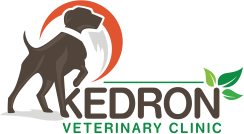Understanding Canine Distemper: Safeguarding Your Furry Companion
Canine distemper is a contagious viral illness that not only affects dogs but also other species of wildlife, including wolves, foxes, and ferrets. This virus, akin to the measles virus in humans, poses a significant threat, particularly to young puppies and unvaccinated older dogs. Learn more about this concerning condition and how we can help at Kedron Veterinary Clinic.
Causes of Canine Distemper: Unveiling the Origins
Dogs become susceptible to distemper through bacterial infections in their respiratory and gastrointestinal systems. Unvaccinated dogs are at an elevated risk of contracting the virus, especially if exposed to infected animals. The virus spreads through the air and indirect contact, such as contaminated bedding and toys, targeting the tonsils, lymph nodes, and eventually the airways, gastrointestinal tract, urogenital system, and nervous system.
Symptoms of Canine Distemper: Recognizing the Signs
Depending on the stage of the illness, you may observe:
- Fever
- Reddened eyes
- Runny nose and watery eyes
- Lethargy
- Loss of appetite
- Coughing
- Vomiting and diarrhea
- Seizures, paralysis, and hysteria (in severe cases)
- Thickened pads on the feet
It’s crucial to contact your veterinarian promptly if you notice any signs of illness in your dog, especially vomiting and diarrhea, which can indicate various health issues.
Prevention and Treatment: Partnering for Your Pet’s Health
While there’s no known cure for distemper, proactive management and symptom alleviation are key. Collaborate with your veterinary specialist to manage symptoms with intravenous fluids and antibiotics, monitoring for complications like pneumonia and dehydration in later stages.
An animal’s chance of recovery hinges on the strength of their immune system, with complete recovery being possible. Vaccination remains the most effective prevention method, underscoring the importance of staying current with your dog’s vaccination schedule and ensuring they receive all recommended puppy vaccinations. Puppies, in particular, should be shielded from potential exposure to reduce their risk of distemper.
Seeking Care at Kedron Veterinary Clinic: Your Trusted Partner
If your canine companion displays any symptoms of distemper, don’t hesitate to reach out immediately. Call us at (07) 3857 1785 or contact us online for guidance and support from our caring team at Kedron Veterinary Clinic.
